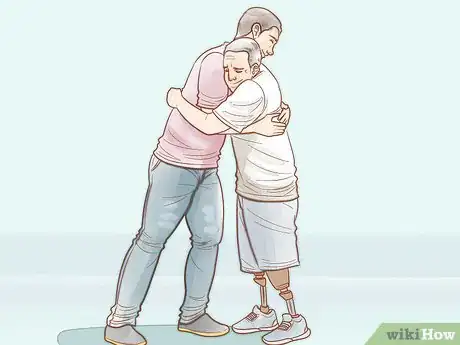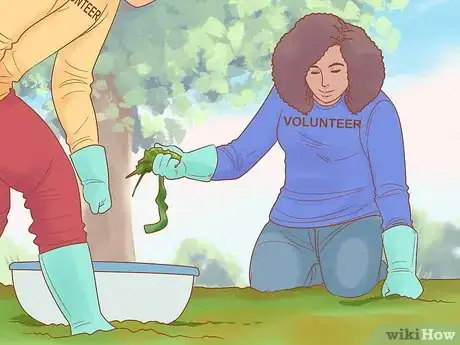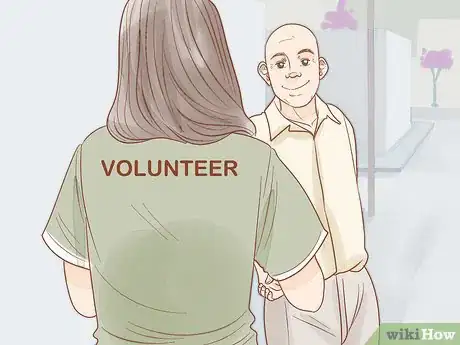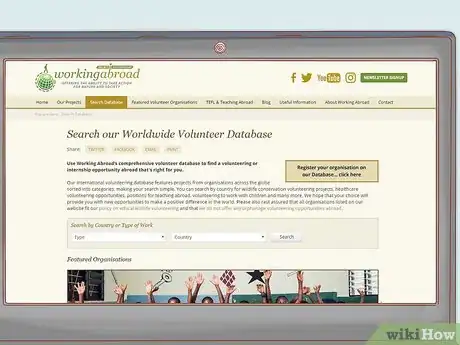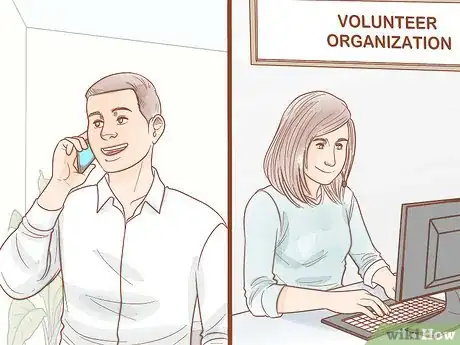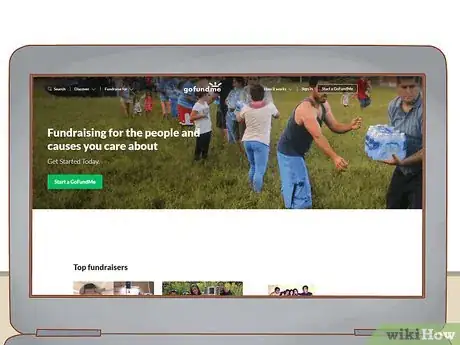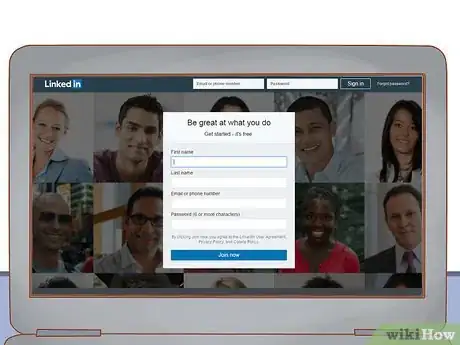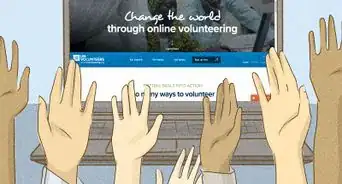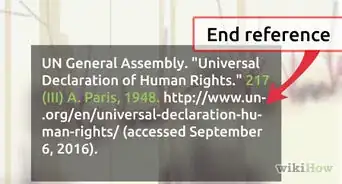This article was co-authored by Asa Don Brown, PhD, DNCCM, FAAETS. Dr. Asa Don Brown is a Clinical Psychologist with over 25 years of experience. He specializes in working with families, children, and couples, treating a variety of psychological disorders, trauma, and abuse. Dr. Brown has specialized in negotiation and profiling. He is also a prolific author having published three books and numerous articles in magazines, journals, and popular publications. Dr. Brown earned a BS in Theology and Religion with a minor in Marketing and an MS in Counseling with a specialization in Marriage and Family from The University of Great Falls. Furthermore, he received a PhD in Psychology with a specialization in Clinical Psychology from Capella University. He is also a candidate for a Masters of Liberal Arts through Harvard University. Dr. Brown is a Fellow of the American Academy of Experts in Traumatic Stress and a Diplomate for the National Center for Crisis Management and continues to serve a number of psychological and scientific boards.
There are 15 references cited in this article, which can be found at the bottom of the page.
wikiHow marks an article as reader-approved once it receives enough positive feedback. In this case, 100% of readers who voted found the article helpful, earning it our reader-approved status.
This article has been viewed 102,905 times.
Being a humanitarian does not necessarily involve getting on the next plane to a third world country; there are many ways that you can be a humanitarian in a very local sense. Being a humanitarian means you are working to improve human welfare, regardless of location. Of course, if you do choose to pursue international humanitarian work, you may want to begin by volunteering, then eventually transition your passion for humanitarian causes into a career.
Steps
Getting Your Start Locally
-
1Start small. You don’t have to travel to the other side of the globe to be a humanitarian. You can start by affecting change in your own neighborhood. Look at the community around you and try to identify humanitarian issues that you can help address. It could be helping the homeless or the hungry, volunteering at an after school program, or picking up litter.[1]
- Look for things that you feel like you could help to improve.
- If there is a lower income community in your area, think about what types of things you could do that could improve their standard of living.
-
2Volunteer at a local shelter. There are homeless shelters and food banks in many larger communities that are always looking for volunteer help. Shelters for victims of abuse are also fairly common and need help organizing and executing fundraising and day to day operations. You can offer your time to these organizations as a way to pursue local humanitarian work.[2]
- Look for a cause that you feel strongly about and volunteer your time at a local organization to help.
- Humanitarian work can be done anywhere in the world, including your own neighborhood.
- Try using websites like http://www.idealist.com to find local organizations that need volunteers.
Advertisement -
3Bring the humanitarian mindset to work with you. You can help humanitarian causes by getting the company that you work for involved. Organize a can drive at work, or start a collection of clothing to help the area’s under privileged. Many companies will not only authorize you to pursue humanitarian efforts at work, they may even encourage it because it improves perception of the organization in the community.[3]
- Make sure to speak to your manager for permission before starting a program at work.
- Reach out to local shelters and humanitarian organizations to see what is in high demand that you can attempt to help with.
-
4Spread the message on social media. One of the biggest challenges facing humanitarian organizations all over the world is funding. You can help by engaging your friends and family on social media and encouraging them to donate to humanitarian causes. This is one aspect of humanitarian work you can do from home that can have a global reach.[4]
- You can share content posted by your favorite humanitarian organizations.
- Posting your own message about important causes with links to donate may help your message to reach people.
-
5Be consistent. Volunteering your time, skills, or resources here and there can be extremely rewarding, but consistency can help your efforts to compound. Instead of volunteering at a single event, or helping to raise funds one time, volunteer with consistency for local organizations that need your help. In order to be truly effective, humanitarian efforts must include both short terms and long term plans.[5]
- Consistent humanitarian work can help you to develop a relationship with the people in your community that you are helping, which can be more rewarding for you both.
- Every bit of your work counts. Over time, a few hours out of your Sunday afternoons can compound into a significant change for the people in your area.
Developing a Humanitarian Mindset
-
1Do away with selfishness. Being a humanitarian is about action, but your intentions matter too. Pursuing work that helps others with the intent of gaining something like recognition or influence isn’t the purpose of being a humanitarian. Instead, look for ways to benefit others without placing an emphasis on what you may get in return. In order to be a capable humanitarian, you need to demonstrate tolerance, cultural understanding and altruism.[6]
- Approach humanitarian work with a mindset of giving, helping, and hope to improve the world around you.
- Don’t focus on what you can gain from your effort, focus on what your community can gain.
-
2Value human welfare. The nature of humanitarian work is to pursue ways to end human suffering in all forms. In order to do so, you must learn to appreciate the value in saving lives, relieving suffering, and helping to maintain human dignity. Try to imagine yourself in the difficult positions of the people you seek to help to better empathize with their situations.[7]
- It’s important that you learn to show empathy for all people.
- Valuing human welfare can help you to overcome the discomfort of helping people in difficult situations and environments.
-
3Free yourself from any prejudices. A humanitarian must value human life in all forms. That means letting go of any prejudices or generalizations you may find yourself making about groups of people. All people, regardless of gender, sexual orientation, religion or race deserve to live a life that is free from suffering, and it’s the humanitarian’s job to help make that happen.[8]
- It is not uncommon for people to grow up with misconceptions about groups of people they have never met, but you must actively engage and overcome these ideas.
- A humanitarian values all human life equally and works to alleviate suffering equally worldwide.
-
4Maintain a professional demeanor. Humanitarians need to carry themselves in a professional manner in the field as well as the office. Each organization has its own set of guidelines to aid in your understanding of professional behavior, but it is all based in the concept that all humanitarian workers should adhere to common standards in order to maximize their effectiveness in a crisis.[9]
- Carrying yourself in a professional manner means maintaining an ethical standard and demonstrating respect for all you encounter.
- Being professional also means following the local laws and regulations as well as those enforced by your organization.
-
5Seek and embrace new experiences and challenges. Humanitarian work can lead you all over the globe and take you on exciting adventures, but it can also present some extremely difficult challenges. In order to be an effective humanitarian, you must seek new ways to solve problems and overcome obstacle and find the value in creating relationships with new people.[10]
- Meeting new people and facing new issues can be a way of life for humanitarians.
- Embracing the experiences that are inherent to these challenges can help you to overcome them.
Volunteering Globally
-
1Determine what skills you can offer. Humanitarian efforts need all kinds of skill sets, all over the planet. You may already possess a skill or trade that could be extremely helpful to the right cause. Take an inventory of your qualifications and use that to inform your search for a volunteer opportunity. Volunteering to share your expertise can help you make the biggest impact possible with your time and effort.[11]
- You may want to consider volunteering in the same field you work in. Whether you work on a construction site or in a cubicle, there’s likely an organization in need of your skill set.
- Consider what other skills you possess that may be helpful. Skills like leadership, problem solving, or any technical skill are always in high demand.
-
2Choose a cause to support. There are many different organizations and causes you can choose to volunteer for, so it’s important to find one that you’re passionate about. Volunteering overseas is a significant commitment, so finding a cause that matters to you can help alleviate the stress of leaving your home behind for a short time. Here are some common areas people volunteer their efforts for:[12]
- Marine Conservation
- Wildlife Conservation
- Teaching and Education
- Community Development
- Healthcare
- Environmental Conservation
-
3Look for an organization that supports your cause of choice. Once you have identified a cause you’d like to work for, start looking for organizations that support that cause. Many organizations have volunteer programs to help get you placed in an area you can help. Make sure to research the organization you choose to volunteer for extensively, as your safety should be a top priority.[13]
- Find volunteer opportunities online in databases like the one found here: http://www.workingabroad.com/database
- Once you find an organization you like, look for news stories about it online. It can help you to better understand the organization and shed light on any issues the organization has had recently.
-
4Contact the organization of your choice. Many organizations have outreach professionals whose job it is to help you plan your volunteer experience. Because each organization has different procedures, these people can walk you through the steps necessary to get on your way to providing aid in a part of the world that needs your help. You can also contact third party organizations like Working Abroad who can help get you started on the right track.[14]
- Look for contact information on the webpage of the organization you choose.
- Ask questions to make sure you have all of your important concerns addressed like how you will travel there, where you will stay and what expenses are involved.
-
5Raise money for your trip. There are a number of expenses involved in volunteering to work for overseas humanitarian causes. You will likely be responsible for the costs of your transportation to and from the region of the world you volunteer in. Many organizations also charge a program fee to offset the cost of providing you with housing and food during your time abroad. These costs can vary dramatically depending on the organization you volunteer for and the distance you need to travel. You can get a good sense of how much you will need to raise by speaking to a volunteer coordinator within the organization you will be working with.[15]
- Try using a fundraising website like GoFundMe.com or Classy.org to raise money for your trip.
- Ask friends, family and coworkers to help support your cause by donating toward the cost of your trip.
- Write letters to business owners or individuals in your community that you think may be willing to help.
-
6Plan your trip thoroughly and take the necessary precautions. Before leaving for a humanitarian aid trip, it’s important the you plan things thoroughly. Start by making an appointment with your doctor or a travel medicine specialist to receive any immunizations that may be necessary for the region you’re traveling to. Make sure to speak to your volunteer coordinator about what to expect so you can pack the necessary equipment and let your family know your plans.[16]
- Make sure your coordinator tells you what kind of traveling you can expect to do and in what regions of the world so you can appropriately prepare for the trip.
- You may want to have a dental checkup before you leave as well, to ensure your trip is not hindered by an unexpected dental emergency.
-
7Share what you have learned. Your humanitarian trip will likely change the way you view the world around you, and it’s important that you share that message with others upon your return. Studies have shown that humanitarian trips can increase reflexive learning about external factors effecting the world as well as internal factors that affect our perception. By sharing your experiences, you can encourage others to take similar trips, thus expanding their perspectives as well.[17]
- Sharing your experiences can help encourage others to volunteer their time and skills as well.
- The experience you gain as a volunteer can also help lead to a career in humanitarian service.
Finding a Career in Humanitarian Work
-
1Ensure you have the right qualifications. If you don’t have extensive volunteer work to pull from, you will likely need a master’s degree from an accredited institution in order to find a career in humanitarian work. It can be an extremely competitive field to find work, so having an advanced degree in a field that is of particular benefit to the organization you want to work for can help.[18]
- Advanced degrees in engineering, accounting, or other in demand fields are always sought after.
- A master’s degree or higher in humanitarian related fields such as food security is a great way to get in the door.
-
2Put together a good résumé. You will need to apply to a position within a humanitarian organization just like any other job, so the first step should be to make sure you have an updated and well put together résumé. Make sure to highlight your skills and experiences that make you a valuable addition to a non-government organization’s team.
- Make sure to list any volunteer experience you have in humanitarian endeavors.
- Create a cover letter that speaks to your passion about the organization you apply to, as well as the cause they support.
-
3Search for positions you’re qualified for on job board websites. You can find careers in the humanitarian industry on most traditional job boards like Indeed.com or Monster.com, but there are also specialized job boards you can visit that allow people to post only positions in non-government, humanitarian organizations. You may also want to create a LinkedIn account to help you look for positions.[19]
- Try visiting Reliefweb.int, Trust.org or DevNetJobs.org for international humanitarian job postings.
- If there is a particular organization you have in mind, look on their website for open positions.
-
4Ace the interview. Once you are able to get an interview to work for the humanitarian organization of your choice, make sure to prepare beforehand. You should do research on the organization and prepare yourself to answer questions about your qualifications and goals, as well as about the organization you are interviewing with.
- Make sure to dress appropriately for your interview. You should wear a suit or a suit with a skirt and have good hygiene.
- Be professional and confident in order to leave a a good impression with the interviewer.
-
5Embrace working in the home office. Like any other organization, humanitarian non-government entities need people in all sorts of positions in order to be successful. Once you’re offered a position, it may not be exactly what you were hoping for. Many humanitarian organizations will require that you work in their home office for a year or so before doing field work. Embrace this opportunity to get to know the organization and do your best to help from the position you’re in.[20]
- Take the opportunity to network with people within the organization and better understand how it goes about its humanitarian work.
- Remember that every person counts in terms of helping the cause. After time, you may be able to transfer to field work.
Expert Q&A
-
QuestionWhat motivates humanitarian workers?
 Asa Don Brown, PhD, DNCCM, FAAETSDr. Asa Don Brown is a Clinical Psychologist with over 25 years of experience. He specializes in working with families, children, and couples, treating a variety of psychological disorders, trauma, and abuse. Dr. Brown has specialized in negotiation and profiling. He is also a prolific author having published three books and numerous articles in magazines, journals, and popular publications. Dr. Brown earned a BS in Theology and Religion with a minor in Marketing and an MS in Counseling with a specialization in Marriage and Family from The University of Great Falls. Furthermore, he received a PhD in Psychology with a specialization in Clinical Psychology from Capella University. He is also a candidate for a Masters of Liberal Arts through Harvard University. Dr. Brown is a Fellow of the American Academy of Experts in Traumatic Stress and a Diplomate for the National Center for Crisis Management and continues to serve a number of psychological and scientific boards.
Asa Don Brown, PhD, DNCCM, FAAETSDr. Asa Don Brown is a Clinical Psychologist with over 25 years of experience. He specializes in working with families, children, and couples, treating a variety of psychological disorders, trauma, and abuse. Dr. Brown has specialized in negotiation and profiling. He is also a prolific author having published three books and numerous articles in magazines, journals, and popular publications. Dr. Brown earned a BS in Theology and Religion with a minor in Marketing and an MS in Counseling with a specialization in Marriage and Family from The University of Great Falls. Furthermore, he received a PhD in Psychology with a specialization in Clinical Psychology from Capella University. He is also a candidate for a Masters of Liberal Arts through Harvard University. Dr. Brown is a Fellow of the American Academy of Experts in Traumatic Stress and a Diplomate for the National Center for Crisis Management and continues to serve a number of psychological and scientific boards.
Clinical Psychologist Being a humanitarian is simple. It's about being concerned with and determined to ensure the stability and safety of others. It’s about enforcing the global understanding of equality, liberty and justice. We are driven to ensure that those that we are serving are capable of obtaining their basic needs and we are concerned with fighting against oppression.
Being a humanitarian is simple. It's about being concerned with and determined to ensure the stability and safety of others. It’s about enforcing the global understanding of equality, liberty and justice. We are driven to ensure that those that we are serving are capable of obtaining their basic needs and we are concerned with fighting against oppression. -
QuestionHow can I be an effective humanitarian teacher?
 Community AnswerIn order to be an effective humanitarian teacher, you will need to posses the requisite skills to teach, and then embrace the culture of the community you are teaching in. Understanding the people you are teaching is the best way to tailor your lessons to them in a way that people can understand and appreciate.
Community AnswerIn order to be an effective humanitarian teacher, you will need to posses the requisite skills to teach, and then embrace the culture of the community you are teaching in. Understanding the people you are teaching is the best way to tailor your lessons to them in a way that people can understand and appreciate. -
QuestionHow can I do humanitarian work if I'm only 11?
 Community AnswerYou could raise money for a humanitarian organization at school or in your community. You might want to think about organizing a bring-and-buy sale or cake sale, or a sponsored event such as sponsored silence or fun run. Contact local charities and see if they have any volunteer opportunities for someone your age.
Community AnswerYou could raise money for a humanitarian organization at school or in your community. You might want to think about organizing a bring-and-buy sale or cake sale, or a sponsored event such as sponsored silence or fun run. Contact local charities and see if they have any volunteer opportunities for someone your age.
Expert Interview
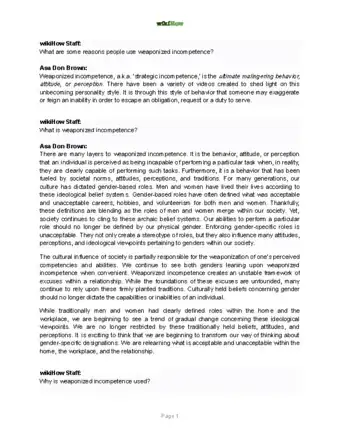
Thanks for reading our article! If you'd like to learn more about being a humanitarian, check out our in-depth interview with Asa Don Brown, PhD, DNCCM, FAAETS.
References
- ↑ http://16days.thepixelproject.net/activism-101-10-ways-to-start-becoming-a-humanitarian-on-world-humanitarian-day-2011/
- ↑ http://16days.thepixelproject.net/activism-101-10-ways-to-start-becoming-a-humanitarian-on-world-humanitarian-day-2011/
- ↑ http://16days.thepixelproject.net/activism-101-10-ways-to-start-becoming-a-humanitarian-on-world-humanitarian-day-2011/
- ↑ http://www.forbes.com/sites/alexandratalty/2013/10/10/millenial-thursdays-the-down-and-dirty-of-international-aid-work/#716480704302
- ↑ http://compact.org/resource-posts/effective-relationships/
- ↑ http://www.transitionsabroad.com/listings/work/articles/working-in-disaster-relief-and-humanitarian-aid.shtml
- ↑ https://www.sokanu.com/careers/humanitarian/
- ↑ https://www.sokanu.com/careers/humanitarian/
- ↑ https://sites.tufts.edu/jha/archives/73
- ↑ http://www.oxfam.ca/blogs/what-does-it-mean-to-be-a-humanitarian
- ↑ http://www.forbes.com/sites/alexandratalty/2013/10/10/millenial-thursdays-the-down-and-dirty-of-international-aid-work/#6968d9d14302
- ↑ http://www.workingabroad.com/
- ↑ http://www.workingabroad.com/database
- ↑ http://www.workingabroad.com/volunteering-abroad/faqs-and-help
- ↑ https://www.gooverseas.com/blog/top-10-tips-fundraise-your-volunteer-travels
- ↑ http://wwwnc.cdc.gov/travel/page/humanitarian-aid-workers
- ↑ http://www.universityworldnews.com/article.php?story=20120125093527255
- ↑ http://www.forbes.com/sites/alexandratalty/2013/10/10/millenial-thursdays-the-down-and-dirty-of-international-aid-work/#716480704302
- ↑ http://www.forbes.com/sites/alexandratalty/2013/10/10/millenial-thursdays-the-down-and-dirty-of-international-aid-work/2/#7919f3902f03
- ↑ http://www.forbes.com/sites/alexandratalty/2013/10/10/millenial-thursdays-the-down-and-dirty-of-international-aid-work/2/#7919f3902f03
About This Article
To be a humanitarian, start by looking for volunteer opportunities locally or by searching websites like www.idealist.com. Make sure to start small, like picking up litter in your neighborhood or volunteering at an after school program. Then, organize events like a clothing drive at work to get others involved. Additionally, work on being less selfish and freeing yourself from prejudices to develop a humanitarian mindset. For tips on how to find a career as a humanitarian, read on!
